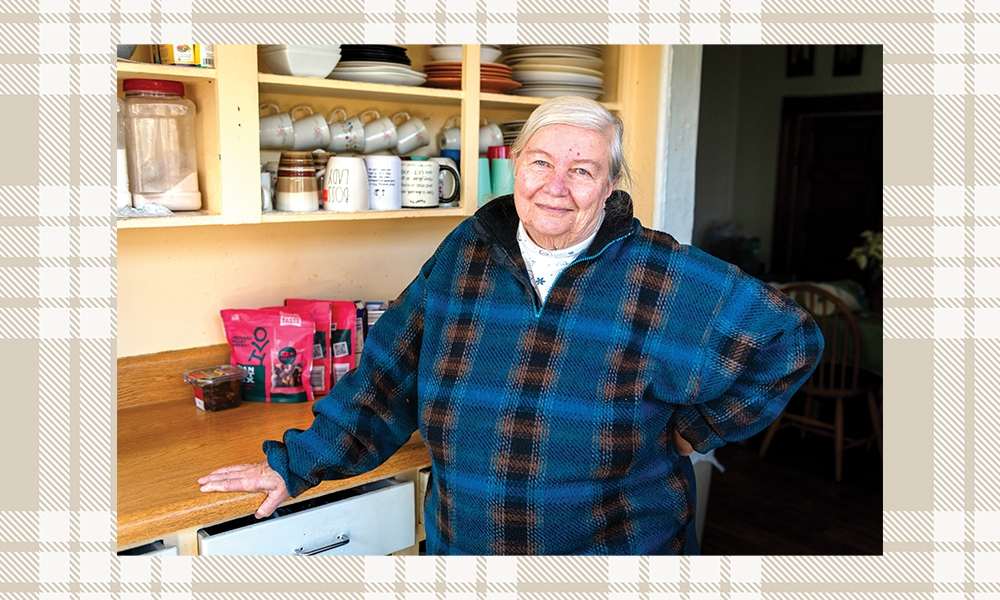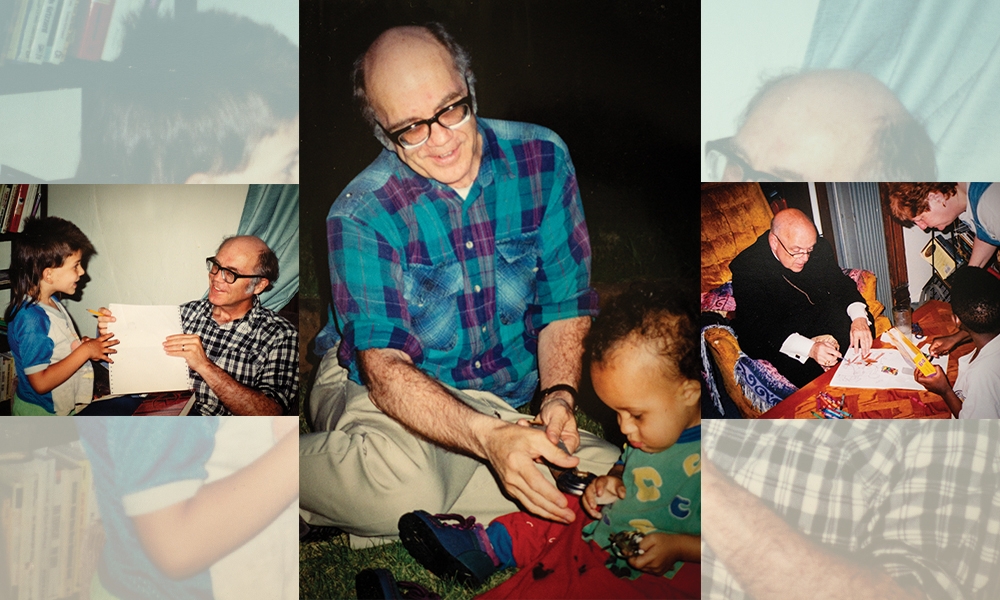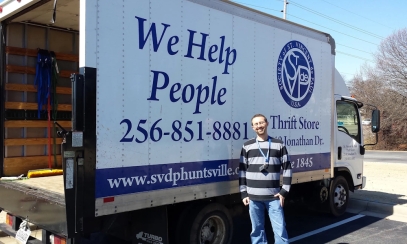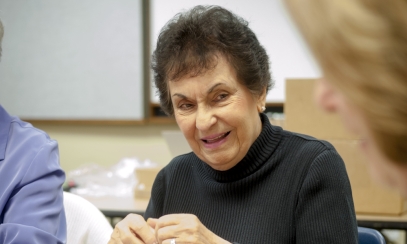
Doing what Jesus said
Alabama’s only Catholic Worker house marks 30 years of service
Alabama’s only Catholic Worker house marks 30 years of service
As parents raise their children, many things are said: some lessons stick, much goes by the wayside.
For Shelley Douglass, co-founder of Birmingham’s Catholic Worker House, Mary’s House, one of her mother’s sentiments would not only shape Douglass’ entire life but have far reaching effects for those in need of a helping hand.
As parents raise their children, many things are said: some lessons stick, much goes by the wayside.
For Shelley Douglass, co-founder of Birmingham’s Catholic Worker House, Mary’s House, one of her mother’s sentiments would not only shape Douglass’ entire life but have far reaching effects for those in need of a helping hand.
Growing up with a father employed by the Central Intelligence Agency in the 1950s meant living in such far-off places such as Switzerland, Pakistan, and Germany. Wherever the family ended up, they would attend whatever local church offered services in English. In Switzerland, they were Episcopalian. In Pakistan and Germany, they were Methodist. The incongruency of faith traditions led Douglass’ mother to state, “If you read the New Testament and do what Jesus said, then you are going to be ok.”
The teenage Douglass took those words to heart, compelling her to challenge the family’s fidelity to the moral lesson. While her mother explained the impracticality of giving away all physical possessions, the young Douglass still wasn’t convinced, and when one of her friends converted to Catholicism, she was intrigued by the Church as the Mystical Body of Christ.
As she delved into the teaching, she learned that the Church is not only “gathered around Him; she is united in Him, in His body.” (CCC 789) The reality that the faithful, incorporated into the Body of Christ through the sacraments of initiation, are brought into communion with one another through communion with Christ helped Douglass see a path to achieving her mother’s instruction. “It made sense to me that if one part suffers, another part suffers,” Douglass remembers. “We’re all responsible for each other and we need to make things better for each other.”
Her family saw their 16-year-old daughter’s desire to convert as fleeting and insisted she was headed down the wrong path. The young Douglass, however, did not waiver. Two years later she was enrolled as a freshman at the University of Wisconsin, and on her eighteenth birthday, she went to the campus’ Catholic chapel, St. Paul’s, and began instruction. It was in this very chapel’s vestibule in 1963 that Douglass picked up a Catholic Worker newspaper.
The Catholic Worker movement, which originated in the early 1930s, sought to “live in accordance with the justice and charity of Jesus Christ,” practicing nonviolence, the works of mercy, manual labor, and voluntary poverty.
For Douglass, the movement, which attempted to create a society where the good of each member is bound to the good of the whole in the service of God – embodied the Church’s teaching of the Mystical Body of Christ. “It’s always fascinated me,” Douglass contends, “that there are these communities of people who are not vowed religious but live in community and follow Jesus’ teachings as a discipline, loving your enemy, sharing what you have with people who have less, being of service, and working for peace.”
Douglass would go on to marry Jim Douglass, an author and a man who shared her affinity for living a life of service and promoting peace. They would spend close to two decades traveling to different states carrying out their mission. In the 1980s, the couple was involved with an organization in Washington State, which led them to Birmingham in 1989. When they arrived in Birmingham, Douglass and her husband began attending Our Lady, Queen of the Universe in Birmingham.
On one fateful day, a Native American family showed up at the Douglass’ new parish church after having been turned away by other churches in the area. The family of six was on their way from Florida to their tribe’s reservation in Washington State. The mother had been diagnosed with a brain tumor and needed medical care.
At the time, Our Lady, Queen of the Universe did not have a pastor, so the visiting priest reached out to the congregation. Douglass and her husband took the family home for the night, obtained gas money and food the next day, and sent them on their way with a list of Catholic Worker houses along their path home. It was at that moment that Douglass realized Birmingham had a need: a Catholic Worker house.
Providentially, Douglass’ husband had just won an award for a recent book and was given $2,000. Half of the money was used to pay bills, which left $1,000 to buy a house. “You don’t get paid a salary for following Jesus,” Douglass says with a smile, “so you just trust.” After looking high and low for the right house, Douglass drove past 2107 Avenue G in Ensley. “It looked like a Catholic Worker house,” she explains. “They all look the same. They’re houses built around 1900, fairly cheap, and kind of run down.”
Douglass met with the owner and explained her vision for the house. Moved by the notion that her childhood home would be used for hospitality, the owner agreed to take the $1,000 as down payment and gave Douglass three months to raise the remainder of the purchase price, $25,000.
Douglass and her husband worked day and night begging and pleading for help. The likes of Joe Bruno as well as other prominent Catholic families in the Birmingham area contributed. With the help of the secular press, the word about the endeavor reached many hearts, and Douglass received many small donations, leaving her with a house and a little extra money to fix a number of issues: water damage, lead paint removal, and pest removal.
Douglass formed a small board, arranging that the board would legally own the residence. “We didn’t want to raise money for a private house,” she points out. The name for Birmingham’s new Catholic Worker house was easy she says. “Mary was homeless,” she exclaims. “Mary, Joseph, and Jesus wound up in a stable because there was no room for them in the inn.”
A year later in December of 1993, Douglass, her husband, and a group of volunteers were celebrating the completion of the repairs when the phone rang. On the other end of the line was a mother of two children who desperately needed a place to stay. Without skipping a beat, Douglass had the three settled in one of the newly finished rooms before the end of the party.
For the next 25 years, Douglass would live in Mary’s House as the hospitaller, practicing the art of Catholic Worker hospitality. “We usually had about a thousand dollars in the bank at any given time, and we would just go on that,” she remembers. For her efforts, Douglass received a meager stipend of $100 a month. Trusting in God, however, allowed Douglass to give a “hand up” to countless men, women, and children over the years. When she turned 75, she made the difficult decision to retire as hospitaller.
Since her retirement four years ago, Mary’s House has gone through a bit of a transition, but it still exists as a bastion of hospitality for those struggling to get on their feet. As for Douglass, she is still a member of Mary’s House board. At the age of 79, she continues her decades-long tradition of handing out a hot meal, clothes, and toiletries every Sunday afternoon at the Storyteller Fountain in the heart of Five Points South in Birmingham. She also has hopes of restarting monthly Pax Christi meetings. Needless to say, Douglass has lived every day of her life as her mother instructed.
“Read what Jesus said to do and then go do it,” she instructs. “Get to know the people the pope says are on the edges. That’s where you meet the real people. Make that personal connection: it’s an adventure. You meet Jesus in the poor, but they really aren’t the poor: there’s Heidi, there’s Jim, there’s Darisha.”
Although Douglass’ life could be characterized as one of complete and total almsgiving, she has a bit of an aversion to the word. “I just don’t like calling it that. If you are living a Christian life, it shouldn’t be something extra because that is what Christian life is.”
“Mary’s House has always been a community project. We are the lucky people who get to translate your sharing into concrete things that benefit real people,” says Douglass. While money is the most versatile form of help, which is used for groceries, bus passes, and the payment of bills, in-kind donations of paper goods, cleaning supplies, laundry detergent, baby wipes, gently used adult t-shirts and sweatshirts, socks, small toiletries, and individually wrapped snacks are most welcome. Occasional help in Mary’s House yard is also needed.
Douglass also notes, “We always need your prayers, for ourselves, for our guests, for wisdom, for patience, for justice, and for peace.” If you would like to donate to Mary’s House or are interested in helping with Sunday meals, please contact Douglass at 629.278.3124 or shelleymdouglass@gmail.com. To learn more, please visit Maryshousebham.com.




